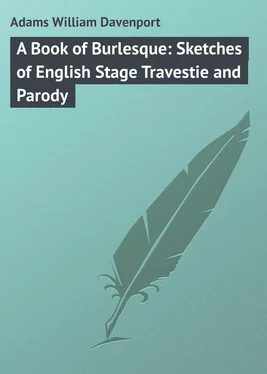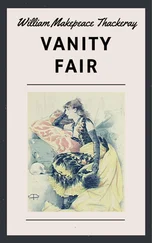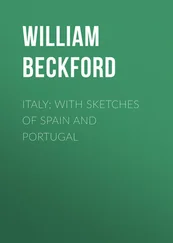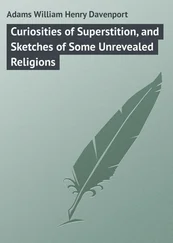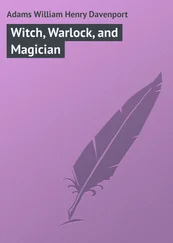William Adams - A Book of Burlesque - Sketches of English Stage Travestie and Parody
Здесь есть возможность читать онлайн «William Adams - A Book of Burlesque - Sketches of English Stage Travestie and Parody» — ознакомительный отрывок электронной книги совершенно бесплатно, а после прочтения отрывка купить полную версию. В некоторых случаях можно слушать аудио, скачать через торрент в формате fb2 и присутствует краткое содержание. ISBN: , Жанр: foreign_prose, на английском языке. Описание произведения, (предисловие) а так же отзывы посетителей доступны на портале библиотеки ЛибКат.
- Название:A Book of Burlesque: Sketches of English Stage Travestie and Parody
- Автор:
- Жанр:
- Год:неизвестен
- ISBN:http://www.gutenberg.org/ebooks/47150
- Рейтинг книги:5 / 5. Голосов: 1
-
Избранное:Добавить в избранное
- Отзывы:
-
Ваша оценка:
- 100
- 1
- 2
- 3
- 4
- 5
A Book of Burlesque: Sketches of English Stage Travestie and Parody: краткое содержание, описание и аннотация
Предлагаем к чтению аннотацию, описание, краткое содержание или предисловие (зависит от того, что написал сам автор книги «A Book of Burlesque: Sketches of English Stage Travestie and Parody»). Если вы не нашли необходимую информацию о книге — напишите в комментариях, мы постараемся отыскать её.
A Book of Burlesque: Sketches of English Stage Travestie and Parody — читать онлайн ознакомительный отрывок
Ниже представлен текст книги, разбитый по страницам. Система сохранения места последней прочитанной страницы, позволяет с удобством читать онлайн бесплатно книгу «A Book of Burlesque: Sketches of English Stage Travestie and Parody», без необходимости каждый раз заново искать на чём Вы остановились. Поставьте закладку, и сможете в любой момент перейти на страницу, на которой закончили чтение.
Интервал:
Закладка:
This era may be said to divide naturally into fairly balanced parts, the first extending from 1831 to 1865, the period covered by Planché's activity in the work; the second from 1865 to 1885, by which time Mr. Edward Terry and Miss Kate Vaughan had retired from the Gaiety. Within the former moiety are comprised the labours of four men who for many years shared with Planché the throne of stage travestie. Need I say that I mean Gilbert Abbott a'Beckett (with whom Mark Lemon so frequently collaborated), Francis Talfourd, and the Brothers Brough? Planché's "Olympic Revels" (1831) was followed by A'Beckett's "Son of the Sun" in 1834, by Talfourd's "Macbeth" in 1847, and by the Brothers Brough's "Enchanted Isle" in 1848. The "Joan of Arc" of William Brough was seen in 1869; its writer had been producing burlesque for over twenty years. Talfourd's career as a dramatist was comparatively brief. Beginning in 1847, it ended in 1860, but was brilliant while it lasted.
Modern burlesque was fortunate indeed in its founders – all of them men of education and refinement, all of them men of letters as well as playwrights. To the literary merit of their products it is unnecessary to bear more than the briefest testimony, for it is everywhere, and by everybody, acknowledged. In the writings of these four men theatrical burlesque was seen at its best. They came fresh to the task, and made the most of their opportunities. They set themselves really to travestie and to parody, and were careful to present, amid their wildest comicalities, a definite, intelligible story. They dropped naturally into the decasyllabic couplet, and made free use of the pun; but in neither case did they become mechanical or strained. The verse of Planché and A'Beckett is smoothness itself, and they do not descend to word-torturing. Talfourd and the Broughs took more licence in this latter respect, but they never sank into drivel. Above all, not one of these five masters of burlesque permitted themselves to be vulgar either in general treatment or in verbal detail. They were nice in their choice of subjects, and, like Mr. W. S. Gilbert in the case of "The Princess," perverted them respectfully. One finds no horseplay in the fun of these genuine humourists. All their effects are made legitimately, and in decent fashion.
They were happy, too, in the good influence they exercised. The list of their colleagues during the period named is notable. One meets early with the names of Charles Selby and W. H. Oxberry. Then come those of Albert Smith, Kenny, and Shirley Brooks, Leicester Buckingham, and Andrew Halliday, by whom much excellent work was achieved in the 'forties and 'fifties. Of lesser note, in this particular department of endeavour, were Leman Rede, Stirling Coyne, and Tom Taylor, who were more distinguished in other fields. Selby and Oxberry had the knack of writing for the stage which so often results from experience in acting. Smith, Brooks, Buckingham, Halliday, Rede, Coyne, and Taylor, were men whose literary skill, acquired in other quarters, was of eminent service to the comic stage. Especially is it to be regretted that the genial and witty author of "Sooner or Later" did not devote more of his time and talent to the service of burlesque, of the qualities and possibilities of which he had so keen a sense.
But to turn now to the second moiety of the period above named – that extending from 1865 to 1885. We find that this, too, has had the good fortune to be dominated by some burlesque writers of very special capacity – to wit, Mr. F. C. Burnand, the late H. J. Byron, Mr. W. S. Gilbert, and Mr. Robert Reece. Mr. Burnand has been bringing out burlesques ever since 1855, when he wrote "Villikins and his Dinah" for the Cambridge A.D.C. His first London production was his "Dido," seen at the St. James's in 1860. His metropolitan career, therefore, has covered more than thirty years. Byron began at the Strand in 1858, and ended at the Gaiety in 1879. Mr. Gilbert's labours as a producer of travestie in the ordinary sense started early in the 'sixties with "Dr. Dulcamara," and closed in 1870 with "The Princess." 4 4 In the preparation of "The Happy Land" (1873) Mr. Gilbert had only a share, the scenario being his, but nearly all the writing being done by Mr. Gilbert Arthur a'Beckett.
Mr. Reece opened in 1865 with "Prometheus"; and work in which he had a part was witnessed so recently as 1886.
Mr. Gilbert soon found that his true métier lay outside the bounds of ordinary burlesque, and his "Princess" was the stepping-stone to "The Palace of Truth," and, in due course, to "H.M.S. Pinafore " and its successors. His travesties of "L'Elisir d'Amore," "La Fille du Régiment," "The Bohemian Girl," "Norma," and "Robert le Diable," had, however, what all the best specimens of English stage burlesque have had – a literary quality and an entire absence of coarseness or suggestiveness; and no doubt they had, at the time, their due effect upon the public taste. Meanwhile, the premier burlesque writers of the past thirty years are Mr. Burnand, Byron, and Mr. Reece, whose productions have been as notable for their multiplicity and variety as for their technical excellence. All three, like the ablest of their predecessors, have written extravaganza as well as travestie; and, in travestie, they have gone far afield, essaying and succeeding in all subjects and all styles. They, too, have favoured, in the main, the decasyllabic couplet and the pun, bringing both of them to all the comic perfection of which they were capable. The pun, in particular, has reached its highest phase in the writings of these consummate jugglers with words.
Mr. H. B. Farnie had a considerable vogue in burlesque from 1870 to 1885, but never displayed the neatness or the spontaneity of the writers above mentioned. He was fluent, but that was all. Mr. Alfred Thompson at one time did good things in this direction, and so did Mr. Conway Edwardes. Mr. G. A. Sala composed one burlesque, but has not been induced to give it a successor. Mr. Herman Merivale has been content to write two: that he has not written more is to be regretted. Among other recent writers of travestie may be named – Mr. Gilbert Arthur a'Beckett, Mr. Harry Paulton, Mr. F. W. Green, Mr. Arthur Matthison, Mr. Savile Clarke, Mr. W. Younge, Mr. Edward Rose, Mr. Alfred Murray, Mr. Albert Chevalier, Mr. George Dance, Mr. G. P. Hawtrey, Mr. Horace Lennard, Mr. Geoffrey Thorn, and Mr. Cecil Raleigh. In the provinces great successes have been made by Mr. J. McArdle and Mr. Wilton Jones. Of Messrs. Sims and Pettitt, Stephens and Yardley, "Richard Henry," and "A. C. Torr" and H. Mills, I shall have something to say when I come to consider "The New Burlesque," of which they have been the principal producers. If, within the last twenty years or so, travestie has been confined to a smaller number of theatres than before, and if it has been proportionately "depressed," that has been owing, chiefly, to the popularity of comic opera and farcical comedy, into the composition and exposition of which has been thrown, of necessity, very much of the talent which otherwise would have been devoted to the writing and acting of burlesque.
On the whole, the days between 1831 and 1885 were, for burlesque, "palmy" days indeed. They produced not only many admirable writers of the genre , but many admirable actors thereof. Planché was generous in his praise of the artists who helped so greatly to make his pieces "go"; and he did well to be so, for never, I suppose, was a comic writer so fortunate in his interpreters. During his first years at the Olympic he had the aid of the incomparable Vestris, of Rebecca Isaacs, of Miss Murray, of Mrs. Macnamara, of Mrs. Honey, of John Brougham, of James Bland, of James Vining, and of Charles James Mathews, – all in the first rank of their art. At Covent Garden, from 1840 to 1843, the company included, at different times, not only Mme. Vestris, Mrs. Macnamara, Brougham, Bland, and Vining, but Harley, Wm. Harrison, Morris Barnett, Selby, Miss Fairbrother, Miss Priscilla Horton, Mrs. C. Jones, and Mrs. Alfred Wigan. At the Haymarket, during the three years following, Planché had his ideas carried out, not only by Bland and Miss Horton, and during one year by Mme. Vestris and Charles Mathews, but also by Caulfield, Widdicomb, Tilbury, Brindal, Braid, Julia Bennett, Miss Reynolds, and Mrs. L. S. Buckingham. Continuously lucky in this respect, Planché enjoyed – from 1847 to 1853, at the Lyceum – the services of Miss Fitzwilliam, Julia St. George, Miss Oliver, John Reeve, Robert Roxby, Basil Baker, and Mr. and Mrs. Frank Matthews, in addition to Vestris and Mathews and many others of the artists named above. Finally, and best, when Planché brought out, at the Olympic, his "Yellow Dwarf," his "Discreet Princess," and his "Young and Handsome," his chief comedian was the "great little Robson," the fame of whose tragi-comic outbursts still lingers among us, and who had for his successive supporters Horace Wigan, Emery, James Rogers, Julia St. George, Miss Maskell (Mrs. Walter Baynham), and Miss Swanborough.
Читать дальшеИнтервал:
Закладка:
Похожие книги на «A Book of Burlesque: Sketches of English Stage Travestie and Parody»
Представляем Вашему вниманию похожие книги на «A Book of Burlesque: Sketches of English Stage Travestie and Parody» списком для выбора. Мы отобрали схожую по названию и смыслу литературу в надежде предоставить читателям больше вариантов отыскать новые, интересные, ещё непрочитанные произведения.
Обсуждение, отзывы о книге «A Book of Burlesque: Sketches of English Stage Travestie and Parody» и просто собственные мнения читателей. Оставьте ваши комментарии, напишите, что Вы думаете о произведении, его смысле или главных героях. Укажите что конкретно понравилось, а что нет, и почему Вы так считаете.
